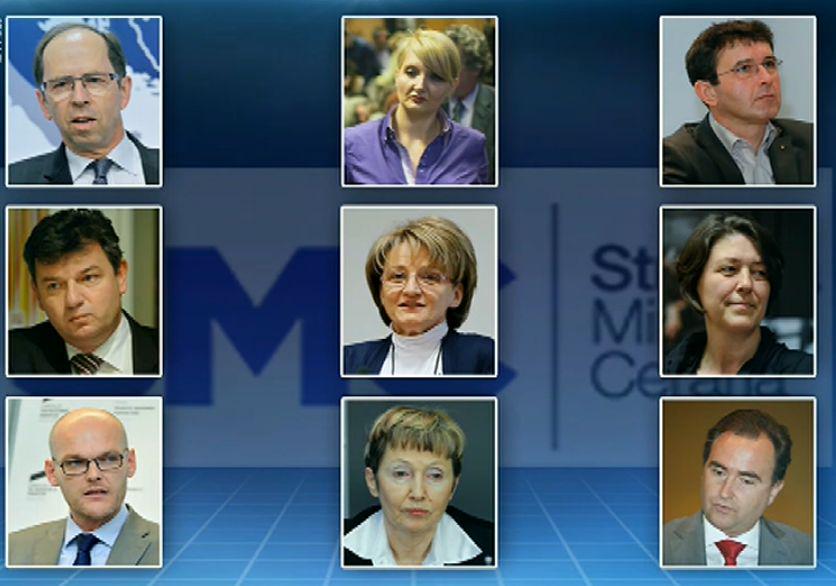Apart from the one for Slovenians abroad, there will also be one for development, strategic projects and cohesion. The new government will be no different than the previous one with regards to the number of ministries. However, a few of the new minister candidates do come as a surprise.
Miro Cerar's team of ministers doesn't answer the key question, whether it will be able to pull the country of the spiraling crisis, in which it has been for more than six years now. One of the reasons is the fact that a third of Cerar's candidates are practically unknown to the wider public.
Cerar won the election because he promised new faces. Another reason for his choice of ministers is that he probably couldn't even find better candidates. Those most qualified to be ministers have been turning down offers in all previous mandates, with the reputation of politicians sinking to the very bottom.
The newcomers will of course be closely watched by their opponents and the public. Their morality will especially be under scrutiny. The first to face serious trials will be Boris Koprivnikar, the candidate for Public Administration Minister. At the start of his mandate he will have to face tough negotiations with public sector unions, worth 350 million euros.
Cerar is taking a gamble with his team of politically inexperienced ministers, especially because he himself is also a newcomer in politics. His trump card will undoubtedly be the candidate for new finance minister Dušan Mramor, together with the biggest surprise in the line-up, Goran Klemenčič, who will now transfer his unquestionable authority from the field of fighting against corruption onto the risky field of politics.
It is rather interesting that Klemenčič is to take over the justice ministry, and not the interior ministry. That could be regarded as the first sign of conflict inside Miro Cerar's SMC Party, a reason why Bojan Dobovšek decided to turn down a ministry offer and remain MP. Nonetheless the choice of Klemenčič has a powerful symbolic meaning, if, of course, the former head of the Corruption Prevention Commission does complete a full mandate as minister.
The new government will still include more than a third of politically experienced members coming from the Pensioner's Party DeSUS and the SD Social Democrats. Cerar hasn't changed the ever-lasting rule of having party quotas, which had brought ministers into the government whose only qualifications had been their party membership cards.
But of course they too might surprise. Experience shows that the key for having political stability are a leader with authority and unity within the coalition. And that's where the biggest threat for the new cabinet comes from. If Cerar fails to be the most politically powerful figure of the next government, his team will follow its predecessors at the very first serious hurdle it faces.
Oglas



































































